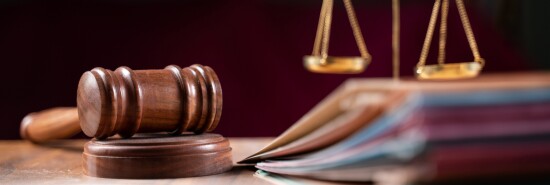
Dan Kelly would preserve judicial restraint in Wisconsin
Matthew Fernholz
Video Embed
The Wisconsin state Supreme Court race has frequently been called the most important election in 2023. I do not know whether that is true, but I do know that money tends to flow to the most significant political races, and the current race for Wisconsin’s high court has shattered the record for the most expensive judicial race in American history. The fact that a state judicial election has turned into a national psychodrama is a sign that many people fundamentally misunderstand the role of our courts.
Alexander Hamilton, of Broadway fame, clearly articulated how the judicial branch of government is entirely distinct from the legislative and executive branches, which are the political branches. In Federalist No. 78, Hamilton wrote that the executive branch “holds the sword of the community,” and the legislative branch “commands the purse [and] prescribes the rules by which the duties and rights of every citizen are to be regulated.” By contrast, the judiciary is the most modest of the three branches, as it commands no armies and appropriates no public funds. As Hamilton observed, the judiciary “may truly be said to have neither FORCE nor WILL, but merely judgment.”
SOROS, SPIELBERG, AND PRITZKER AMONG DEMOCRATIC MEGADONORS IN WISCONSIN SUPREME COURT RACE
On April 4, Wisconsinites will head to the polls to decide who will succeed Justice Patience Roggensack. Justice Roggensack is part of a bloc of four justices who see the role of the court in Hamilton’s modest terms. Indeed, for the past 15 years, the Wisconsin Supreme Court has had a majority of justices (of various compositions) who adhere to this philosophy. As a consequence, Wisconsin has enjoyed stability and predictability from its court system.
The implications of this election are massive, and Dan Kelly is the right person for the job because of his respect for the law, the Wisconsin Constitution, and the U.S. Constitution. Kelly understands that the role of the judiciary as an institution is not to make the law but to determine what exactly it means and how it ought to be applied.
In the past, I have referred to Dan Kelly as “Wisconsin’s Scalia” in honor of the late Supreme Court Justice Antonin Scalia, one of the most brilliant legal minds and perhaps the most well-known textualist in American history. Textualism — the judicial philosophy that Kelly subscribes to — is the most consistent, impartial, and appropriate way to interpret the law because the only consideration it makes is the letter of the law, forcing judges to set aside their personal beliefs.
Scalia frequently voted on cases in a way that was contrary to his preferred political outcome. Indeed, Scalia believed it was imperative for judges to leave their political beliefs at home when considering legal arguments, once famously saying, “[t]he judge who always likes the results he reaches is a bad judge.”
This is the type of justice Dan Kelly has been in the past and the type of justice he would continue to be in the future if elected to the Wisconsin state Supreme Court.
Kelly’s opponent in this race, Janet Protasiewicz, has campaigned openly on her political “values” and has telegraphed how she will vote in various cases based on her values. She has also indicated a desire to overturn settled precedent on legislative maps and Act 10, the law that limited collective bargaining for public sector unions.
Every judge has personal values, but a good judge knows that those values and personal beliefs need to be set aside when litigants and cases come before the court. Political considerations belong in city halls, county commissions, state capitals, and Congress. We elect state House members and senators to represent us, hash out political arguments, and make compromises. Voters should keep that in mind when electing their judges. If voters want changes made to the law, they can contact their elected officials and urge them to do so, and ultimately vote elected officials out of office if they strongly disagree with their policy decisions.
If voters want a dispassionate, neutral arbiter on the Wisconsin Supreme Court who will leave his political beliefs at home while hearing high-stakes cases, they should elect Dan Kelly.
CLICK HERE TO READ MORE FROM THE WASHINGTON EXAMINER
Matthew Fernholz is an attorney in Wisconsin, where has practiced law for a decade. He previously clerked at the Wisconsin Supreme Court and the Wisconsin Court of Appeals.
